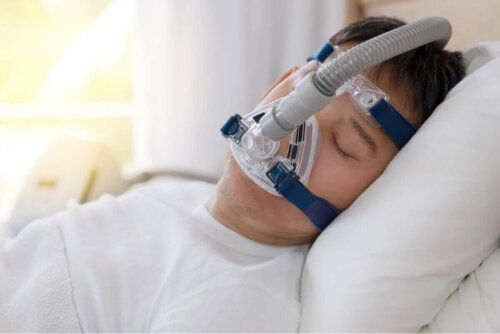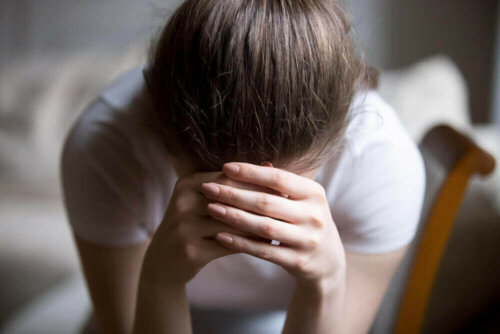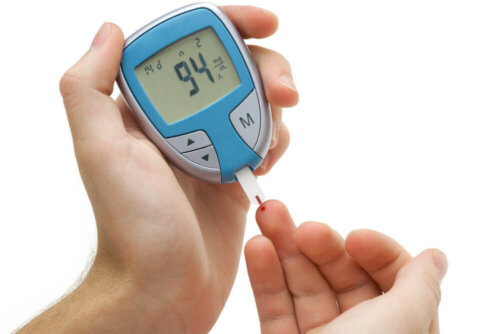The Five Most Common Causes of Night Sweats

Often, the common causes of night sweats can be found in your environment. You might have the thermostat turned up too high, be sleeping in heavy pajamas, or using blankets that are too warm. However, sometimes, when they don’t happen because of one of these reasons, it may be necessary to consider other possible causes.
Other times, it could be a sign of a deeper problem. If you have this problem often, it could be caused by one of the following medical conditions:
Common causes of night sweats
1. Obstructive sleep apnea

People who suffer from this disease don’t sleep well at night. This is because their airways are blocked. This restricts their airflow. However, the inability to breathe is also one of the common causes of night sweats. But this isn’t everything. Other symptoms you might experience if you suffer from apnea are:
- Irritability
- Tiredness during the day
- Snoring
- Headaches
If you notice one or more of these symptoms along with night sweats, it’s best to talk to your doctor. If they diagnose you with obstructive sleep apnea, you should treat it before it causes greater problems. These could include heart problems or diabetes.
The solution for most people is using a machine that helps you breathe during the night. This lets you sleep better and get rid of the associated symptoms.
Find out how to Quit Snoring – Natural Remedy for Sleep Apnea
2. Menopause
Menopause and your age cause ups and downs in your hormones. This makes you lose control of your body. These constant changes also wreak havoc on your body temperature.
Women in menopause frequently wake up feeling smothered and very uncomfortable due to night sweats. Some wake up several times in the same night. These symptoms also come with others:
- Dry skin
- Bad moods
- Irregular menstrual cycles
The average age that menopause starts is around 51. However, you can start to have night sweats years before you start menopause. Some women start to suffer from night sweats in their 30’s.
Menopause is a normal part of a woman’s life and doesn’t need to be “cured.” However, if the symptoms are too annoying, your family doctor can suggest some treatments. These may help you go through this life stage more comfortably.
Read about the Four Great Charms of Menopause
3. Anxiety

When you suffer from anxiety or chronic stress during the day, it can translate into night sweats. In this case, the solution to the problem may be to learn how to better manage those things troubling you.
It’s good to go to a counselor who can help you relieve symptoms of anxiety. This is especially true if you don’t really know what’s causing it. Many therapists practice cognitive behavior therapies. These teach you to change your way of thinking. This way, you can identify and redirect the thoughts that are causing you anxiety or stress.
However, the therapy may not be enough on its own. So, it’s important you do your part. You can try adopting and maintaining the following lifestyle habits:
- Exercising daily
- Cultivating a sense of hope
- Eating a balanced diet
- Attending talk therapy
- Creative activities (painting, writing, sculpting, coloring, etc.)
4. Some diseases
You shouldn’t automatically assume the worst if you have frequent night sweats. The causes of night sweats are varied. However, it’s important to visit your doctor to get the most accurate information about your state of health. Night sweats are a secondary effect of many diseases. Some can be serious, like bacterial and viral infections. It could even be caused by some kinds of cancer.
When it’s a more serious problem, night sweats usually come with other symptoms. Only your doctor can administer the appropriate tests to figure out what’s going on. The treatment varies depending on the disease you have.
5. Low blood sugar might cause night sweats

Hypoglycemia, also known as low blood sugar, can be the cause of night sweats in diabetics. But this isn’t the only symptom. This problem can also make diabetics sweat a lot during the day.
Low blood sugar usually is a secondary effect. This could be caused by problems with insulin or other medications used to treat diabetes. Therefore, if you have these problems on a regular basis, your doctor can suggest some lifestyle changes. Furthermore, these changes can reduce the probability of suffering from low blood sugar. This can include eating certain kinds of foods regularly. It could also mean keeping a closer eye on your blood sugar level.
Consult your doctor if you have night sweats
Night sweats that are accompanied by other symptoms can be a sign that something is wrong with your health. However, they don’t always have to mean the worst-case scenario.
Pay special attention if you have night sweats often. If they occur together with other symptoms, note this as well. Therefore, talking to your doctor can help you figure the main cause out. Furthermore, this will quickly put you on the path to finding a solution.
All cited sources were thoroughly reviewed by our team to ensure their quality, reliability, currency, and validity. The bibliography of this article was considered reliable and of academic or scientific accuracy.
- Amabebe, E., Osayande, S. I., Ozoene, J. O., & Ugwu, A. C. (2014). Relationship between menopausal sweating and body mass index. Open Journal of Endocrine and Metabolic Diseases, 4(6), 137-146. https://scirp.org/journal/PaperInformation?PaperID=46937
- Archer, D. F., Sturdee, D. W., Baber, R., de Villiers, T. J., Pines, A., Freedman, R. R., … & Warren, M. (2011). Menopausal hot flushes and night sweats: where are we now?. Climacteric, 14(5), 515-528. https://www.tandfonline.com/doi/abs/10.3109/13697137.2011.608596
- Arnardottir, E. S, Janson, C., Bjornsdottir, E., Benediktsdottir, B., Juliusson, S., Kuna, ST, … & Gislason, T. (2013). Sudoración nocturna: un síntoma común de la apnea obstructiva del sueño: la cohorte islandesa de apnea del sueño. BMJ abierto, 3(5), e002795. https://bmjopen.bmj.com/content/3/5/e002795
- Bryce, C. (2020). Persistent night sweats: diagnostic evaluation. American Family Physician, 102(7), 427-433. https://www.aafp.org/pubs/afp/issues/2020/1001/p427.html
- Chasset, F., Richez, C., Martin, T., Belot, A., Korganow, A. S., & Arnaud, L. (2019). Rare diseases that mimic systemic lupus erythematosus (lupus mimickers). Joint bone spine, 86(2), 165-171. https://www.sciencedirect.com/science/article/abs/pii/S1297319X1830424X
- Chen, X., Luo, J., Zheng, W., Huang, Q., Du, C., Yuan, H., & Xiao, F. (2024). Hyperhidrosis as the initial symptom in FUS mutation-associated amyotrophic lateral sclerosis: a case report and comprehensive literature review. Neurological Sciences, 45(4), 1523-1527. https://link.springer.com/article/10.1007/s10072-023-07141-9
- Cleveland Clinic. (6 de septiembre de 2022). Night Sweats. Consultado el 17 de abril de 2024. my.clevelandclinic.org/health/symptoms/16562-night-sweats
- Cox, R. C., & Olatunji, B. O. (2016). A systematic review of sleep disturbance in anxiety and related disorders. Journal of anxiety disorders, 37, 104-129. https://www.sciencedirect.com/science/article/abs/pii/S0887618515300384
- Cunha, B. A., & Chawla, K. (2018). Fever of unknown origin (FUO): CMV infectious mononucleosis or lymphoma? European Journal of Clinical Microbiology & Infectious Diseases, 37, 1373-1376. https://link.springer.com/article/10.1007/s10096-018-3262-2
- Heller, S., & Novodvorsky, P. (2019). Hypoglycaemia in diabetes. Medicine, 47(1), 52-58. https://www.sciencedirect.com/science/article/abs/pii/S1357303918302652
- Institute for Quality and Efficiency in Health Care [IQWiG]. (19 de abril de 2018). Overactive thyroid: Overview. https://www.ncbi.nlm.nih.gov/books/NBK279480/#:~:text=People%20who%20have%20an%20overactive,they%20may%20have%20thinning%20hair.
- Landsberg, L. (2018). Clinical features of pheochromocytoma and paraganglioma. Pheochromocytomas, Paragangliomas and Disorders of the Sympathoadrenal System: Clinical Features, Diagnosis and Management, 39-61. https://link.springer.com/chapter/10.1007/978-3-319-77048-2_3
- Mold, J. W., Holtzclaw, B. J., & McCarthy, L. (2012). Night sweats: a systematic review of the literature. The Journal of the American Board of Family Medicine, 25(6), 878-893. https://www.jabfm.org/content/25/6/878.short
- National Cancer Institute. (29 de julio de 2021). Hot Flashes and Night Sweats (PDQ®)–Patient Version.https://www.cancer.gov/about-cancer/treatment/side-effects/hot-flashes-pdq
- Pintér, A., Cseh, D., Sárközi, A., Illigens, B. M., & Siepmann, T. (2015). Autonomic dysregulation in multiple sclerosis. International Journal of Molecular Sciences, 16(8), 16920-16952. https://www.mdpi.com/1422-0067/16/8/16920
This text is provided for informational purposes only and does not replace consultation with a professional. If in doubt, consult your specialist.








